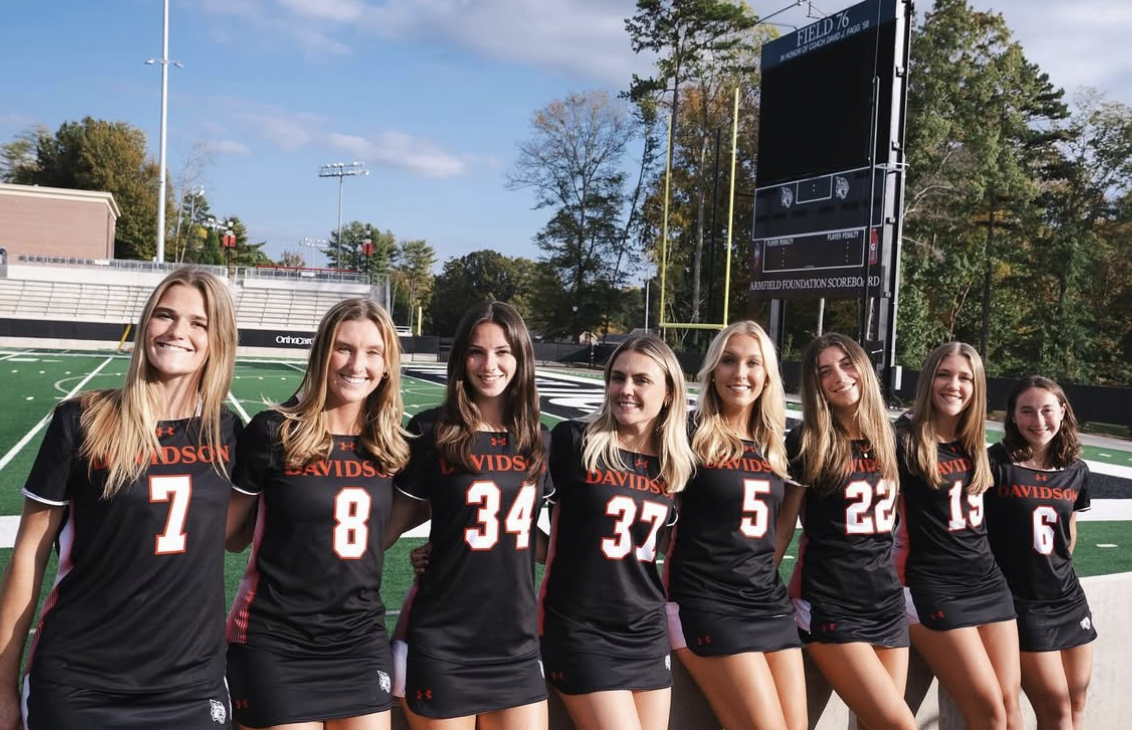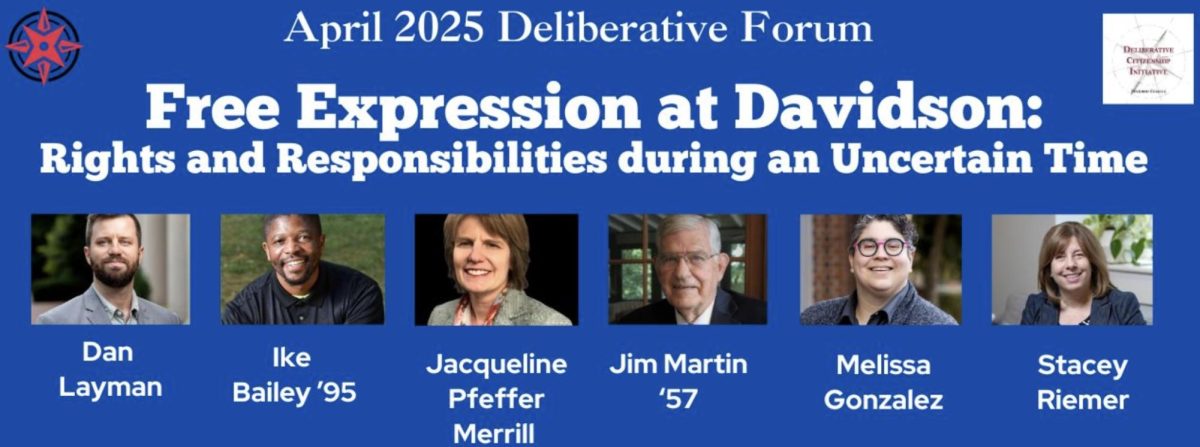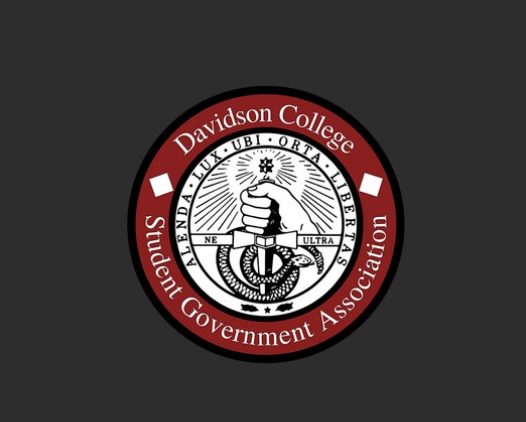The 2025-2026 academic year marks the first year that sophomore members of Patterson Court Council (PCC) organizations will be required to be on the All-Access Unlimited Meal Plan through the College. Although these plans have not yet been enacted, housed PCC organizations are already making future financial plans and adjusting to policy changes. But questions remain for many Davidson students: what changes are happening and what will the future of PCC dining look like?
Since the new policy was announced, students have expressed their fears about the full meal plan being a requirement. Davidson’s previous meal plan system allowed students to choose between a combination of meal swipes at Vail Commons and a corresponding amount of Dining Dollars per semester. Meals through eating houses and fraternities were handled separately and students could adjust their meal plans through the College accordingly. Freshmen this year are required to have a full meal plan for the entirety of their college experience.
When the new system was announced, Davidson students overwhelmingly showed out in defense of the old system, with a 2023 petition asking Davidson to not implement the new system reaching almost 800 signatures. Much of this resistance comes from a lack of understanding about the goals of the changed system. Many students opposed to this change were primarily concerned with how the shift would affect wanting to join a PCC organization.
“It worried me that the school was trying to disincentivize joining a PCC organization,” Kappa Sigma member Ben Kremer ‘27 explained. Kremer is not alone in his worries.
“I was most worried about the cost to students, and paying for fraternities or eating houses on top of that [the full meal plan] would scare people away,” Turner House member Rose Cecchi ‘27 stated.
The College has aimed to minimize the impact of changing dining systems on PCC involvement. Assistant Director of Student Activities Shakaya Walcott said this change was focused on PCC organizations. “Richard [Terry] has worked with the [organization presidents] in the best possible way to make sure the change minimizes the impact to the organization,” she stated.
This work, headed by Director of Auxiliary Services Richard Terry, is not done in vain. Fraternity recruitment this year has increased relative to the last two years, despite the upcoming meal plan changes. “This was our largest recruitment […] in the last three years,” Walcott explained.
Despite fears of PCC minimization, Terry has assured students that Davidson College is not trying to make PCC meal plans a thing of the past.
Rising sophomores, and the classes to follow, will not pay an additional fee to their PCC organization on top of their All-Access Unlimited Meal Plan through the College. Instead, Davidson will pay the organizations for their members’ meals at their houses. Their meal plan through the College will then be reduced to a combination of meal swipes and Dining Dollars that should add up to a total of 21 meals per week.
For example, if a PCC organization member has 10 meals at their house, they also have 10 meals at Commons as well as 200 Dining Dollars. But, this student can use four of the non-PCC swipes at other dining locations like Qdoba. These four swipes are called equivalency swipes.
The change in meal plans to value meal equivalencies is a key factor in this. Meal equivalencies, or equivalency swipes, are a part of the new system and allow students to use $12 value swipes at campus dining options. This system is meant to help students who struggle budgeting out their Dining Dollars throughout the semester, replacing these Dining Dollars with meal equivalencies, which reset weekly.
This was a major point of emphasis for the administration. “[W]e’ve heard […] generally, not just me, but sometimes an email to me from a parent or an advisor has a student say to them, ‘I don’t have enough food. I can’t get enough to eat,’” Terry explained.
“It means that you won’t get two-thirds of the way through the semester and have no [spending power] […] if you come from a really wealthy family, no big deal, right? I’d say use your credit card. But there are a lot of students who weren’t managing that very well. So granted, it’s a little paternalistic. It’s kind of an allowance.”
But questions remain: how exactly does payment between Davidson College and PCC organizations work?
Each student will select a meal plan with their eating house or fraternity based on what the house has chosen to offer, without any regard for cost.
“We’re just going to solicit from the house […] ‘Which students are on your 10, which are on your five, which are on one,’ and we will automatically assign them the complementary plan,” Terry explained. For each student within a house that pays for a set meal plan, the College will pay the organization what their meal plan is worth. The worth of the meal plan will be based on the organization that has the most expensive food.
“We basically took the most expensive house, and that’s what we used. It’s going to mean the house […] that was spending the least on their food, they’re still going to get the same amount per student,” Terry stated.
As for houses that spend less than the most expensive house on the court, the overflow of income will be free for the house to spend as they see fit.
“[T]hat is our money. It does not have to go to food. They’re not going to audit it and ask where it goes,” Rusk House President Ella Grace Dunn ‘27 explained.
“We really want to keep this autonomy, right? You know, you’ll get the money from the plan, but this doesn’t come with additional oversight,” Terry continued.
How the houses will use these funds remains to be seen, but it is clear that it will result in a change in financial planning. This shift in budgeting, while designed in conjunction with PCC organizations, will not be without additional complications.
PCC organizations have already begun planning on how to accommodate the new plan. “Our [Rusk] treasurers have been working on a breakdown and they’re setting up new deals for everyone […] it’s still a bit of waiting to see what’s going to happen,” Dunn said.
Kappa Sigma President Gabe Edmonston ‘26 expressed similar concerns. “It’s just going to take some practice. It’s a complicated system, but that doesn’t necessarily make it a bad one. It’s more work on our part, but it’s more work on their part, I think it’s just going to take some getting used to,” Edmonston stated.
As Davidson approaches the full implementation of the meal plan shift, what will become of the PCC meal plan system remains unknown and future changes appear to be flexible.
“They’ve said we’re trying this out right now, so any feedback is helpful. We’re going to see how this semester goes,” Dunn explained.
While each PCC organization may be preparing individually, Terry has emphasized the College’s willingness to support the organizations throughout these changes.
“We’ll just do the math, we’ll do the change. We’re not perfect, and if some unexpected, unintended consequence comes out of it, then together, we’ll figure it out,” he stated.



















